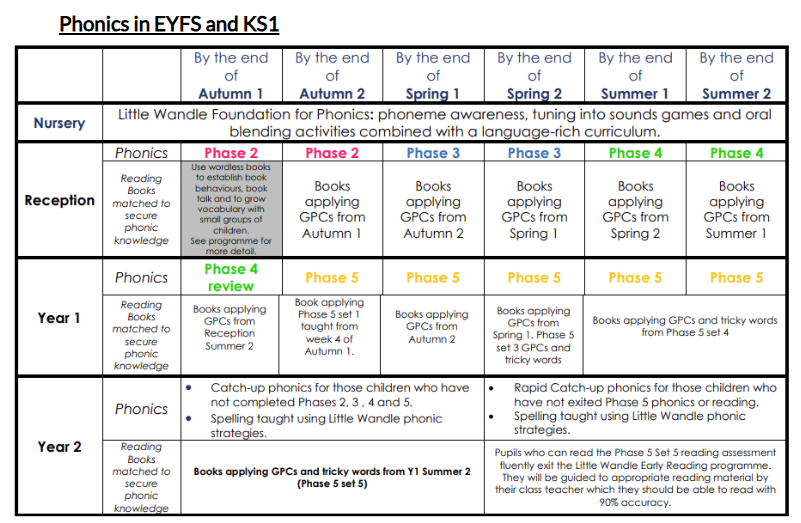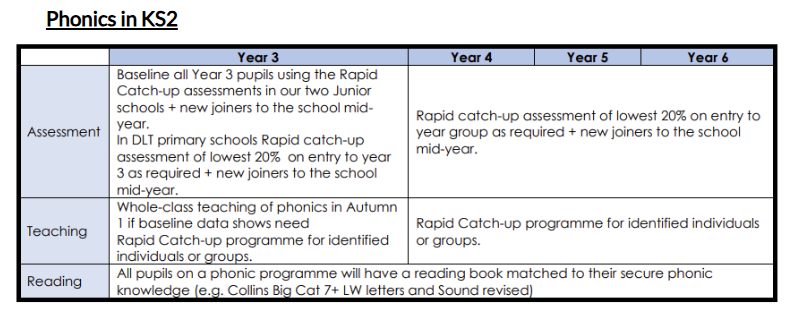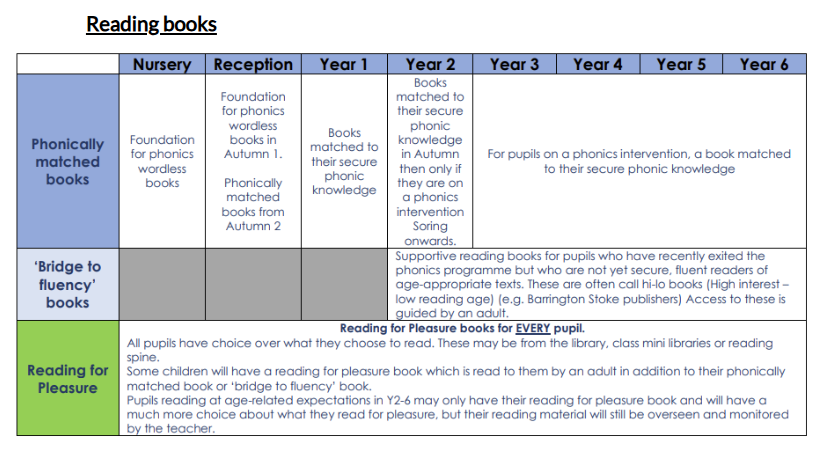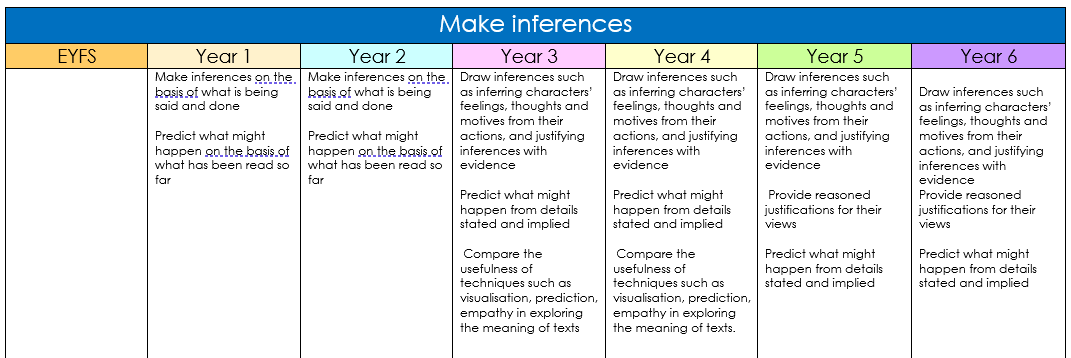Reading at DNA
We believe that reading lies at the core of a schools curriculum design. We aim to make the reading curriculum in our school both aspirational and inspirational. Our aim is for every child to leave school a reader and to feel represented in the reading provision, across the breadth our carefully selected authors, genres and themes.
The reading policy follows whole school guidance on the curriculum and how it is managed, organised, delivered, assessed and evaluated. It also reflects agreed approaches to the whole school issues, i.e. teaching and learning strategies, differentiation, behaviour and discipline, special educational needs and equal opportunities.
Intent
DNA is a reading school. We believe that reading is a vital skill which is the gateway to lifelong success in the world. As a teaching team, we understand how vital it is for our children to be confident readers for academic success and positive wellbeing.
Our reading curriculum seeks to promote a genuine love of reading. Whilst instilling this, we carefully sequence and structure reading sessions to develop excellent fluency and comprehension.
We immerse children in high-quality, age-appropriate texts and integrate our school values into reading lessons:
- Discover – Through reading, children explore new ideas, cultures, and perspectives, broadening their understanding of the world.
- Nurture – We create a supportive environment where every child is encouraged to develop confidence in their reading abilities.
- Aspire – We inspire children to become skilled, independent readers who use their knowledge and love of reading to achieve their full potential.
To be a reading school, we know it is important to promote and celebrate reading wherever and whenever we can, here’s how we do this:
We celebrate reading in our learning environments


We celebrate children who read widely and often at home
All children have access to the BOOM READER app this is a brilliant resource where parents and children can log any reading happening at home. Every month our teachers set their class a reading scrapbook challenge, this is a fun project based on any books children are enjoying at home.
We provide a wide and diverse diet of texts within each year group
Teachers plan text choices carefully ensuring each text extends children’s knowledge of the world, complementing the aims of our knowledge-based curriculum. Each year group also has a ‘100 Brilliant Books list’ which children can read both at home and at school. These high-quality texts aim to deepen and broaden their vocabulary. Modern and classic authors are incorporated into the list, as well as poetry.
We build strong reading foundations
At Northgate, a child’s reading journey begins with excellent Phonics teaching in EYFS, Year 1 and Year 2. We teach phonics using the Little Wandle scheme which provides rigorous progression and assessment ensuring all children at Northgate learn to read with fluency.
We build on our strong reading foundations
Reading fluency and comprehension is further developed in EYFS and KS1 through shared reading. In KS2 whole class reading is an enriching experience where our children immerse themselves in a shared text. They become invested in reading sessions through their shared love of the text which they unpick and understand together.
We promote reading in our community
Every Thursday, we hold a stay and read morning. This is a time for our community to get together, enjoy a warm drink, some breakfast and a story. It's a really positive way to start a Thursday. Throughout the year we hold reading events such as author visits and dual language storyteller events. We are also proud to say we have our very own community library, books for adults and children are free to borrow at any time.


Implementation In Reading
Reading in Practice
At Djanogly Northgate Academy, we use a structured and systematic approach to teaching reading, ensuring that every child develops strong decoding, fluency, and comprehension skills.
Phonics and Early Reading
We follow the DfE-accredited Little Wandle Letters and Sounds Revised programme to teach systematic synthetic phonics. This structured approach ensures that pupils learn grapheme-phoneme correspondences (GPCs) in a clear sequence. All staff are trained in delivering the programme with fidelity, ensuring consistency across the school.
- Phonics is taught daily from Reception to Year 1.
- From Autumn Term 2 in Reception to Autumn Term 1 in Year 2, pupils read fully decodable books matched to their secure phonics knowledge.
- Year 2 pupils who need extra support continue phonics interventions through Little Wandle Catch-up and Rapid Catch-up programmes until they can fluently read Phase 5 Set 5 books.
Phonics Support in KS2
For pupils in Years 3-6 who are still developing decoding skills, targeted interventions through the Rapid Catch-up programme continue until they reach fluency. These pupils read phonetically matched books and also enjoy a Reading for Pleasure book, which is read to them by a fluent reader.
Developing Fluency and Comprehension
Once children exit the phonics programme, they choose books suited to their age and ability from classroom libraries curated with their input, ensuring every child has access to engaging reading material.
- In EYFS and Year 1, comprehension is developed through oral storytelling, discussions, and shared reading experiences. Vocabulary development is a key focus, with pupils exposed to a variety of text types and topics.
- From Reception (Autumn 2) onwards, pupils begin decoding and extracting meaning from texts, developing comprehension strategies through Little Wandle.
- From Year 2-6, as pupils become fluent readers, explicit comprehension teaching takes priority. Pupils learn to apply reading strategies independently, engaging in discussions, asking questions, and making links to prior learning



8 Principles of Reading
In order to give the subjects that we teach the credence that they deserve, we need to consider how we teach each subject discipline. The implementation of our reading curriculum addresses 8 essential principles;
Reading Organisation
Djanogly Northgate Academy is committed to the teaching of phonics from the moment our pupils enter our school full time.
Formal, daily instruction of Little Wandle Letters and Sounds begins in Nursery for pupils in our Nursery and then in Reception from the children's first full week in our setting.
In EYFS and KS1, pupils follow the Little Wandle Letters and Sounds Phonics scheme and a 30 minute daily reading session - followed with fidelity.
In KS2 pupils have a daily reading comprehension lesson for a minimum of 30 minutes. These reading skills lessons are planned for using the class novel for the term or linked to themes & texts which support the development of writing, understanding of current affairs or interests of pupils.
The pitch and expectations in these lessons are crafted using our schools reading conceptual knowledge map. We have developed linked widgets to each of the reading domains to ensure a broad and balanced coverage throughout each planned unit.
All children at Djanogly Northgate Academy are also read to by an at the end of the school day. These texts are specifically chosen based on links to class themes, cohort context / interests & current affairs.

Carefully Planned Texts
Each half term, children are exposed to a carefully selected fiction, non-fiction, and poetry text. These texts are planned to ensure the aims of the National Curriculum are met through a well-structured medium-term plan. The chosen books link to enquiry and foundation subject learning, deepening pupils’ understanding of key topics while also aligning with the interests and lived experiences of our school community. This approach not only fosters engagement but also ensures children develop a broad literary knowledge across different genres and subjects.
- Long term plans - Reading skills are planned and taught in accordance with the texts specified on their English long term plans, completed by each year group.
- Medium term plans - The Medium term plans outline the progression of learning (small steps) along with the curriculum links, linked texts and strategies to be used each half term.
- Short term plans - All teachers use Smart Notebook to plan lessons alongside their medium term planning, weekly and daily. The sequence of teaching in reading comprehension lessons is consistent throughout school.
An overview for word reading and comprehension which outlines yearly expected end points for pupils supports teachers in their planning and assessment too.
Our reading books progress by;
Our whole class taught reading lessons, once pupils graduate from our phonics programme, follow our Reading Progression Map.
This progression expectations document supports teachers in their planning and provision. It is broken down into the following areas;
- Range of Texts
- Word Reading
- Comprehension
- Make Inferences
- Language for Effect
- Themes and Conventions and
- Vocabulary.
Please see example and link below.

Impact
At Djanogly Northgate Academy, our intended impact is that by the time our pupils leave, they will have:
- A love of and thirst for reading that lasts a lifetime.
- An appreciation of a diverse range of texts, genres, and authors, broadening their understanding of the world.
- A secure set of fundamental reading skills, enabling them to be confident, independent readers.
- Fluency, prosody, and expression when reading a variety of texts for different purposes.
- A rich vocabulary that enhances both their speech and writing.
Through our carefully structured reading curriculum, children learn more, know more, and remember more, as their learning across all subjects is strengthened by their reading experiences. By embedding reading into every aspect of school life, we ensure that all pupils leave well-equipped for the next stage of their education, ready to engage with the wider world as skilled, thoughtful, and enthusiastic readers.

